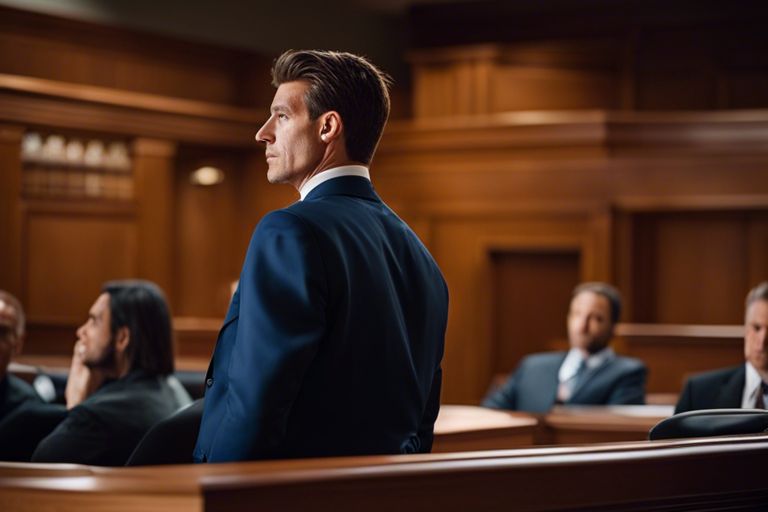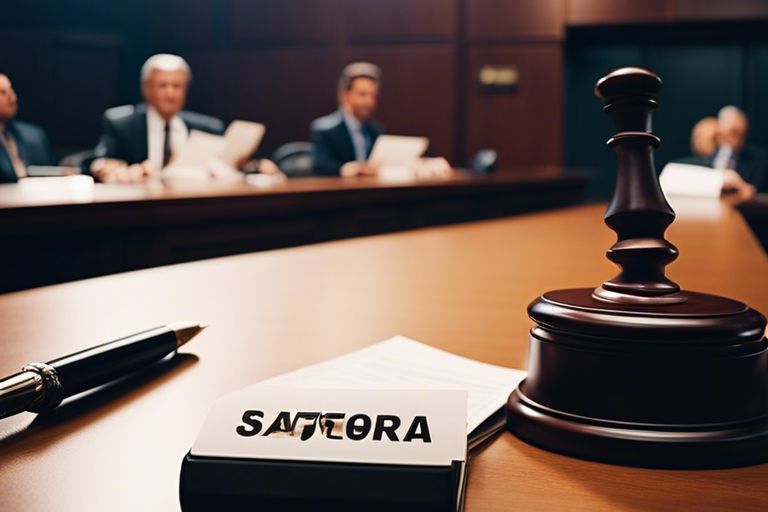You’ve heard of the severe consequences that come with a DUI conviction in Arizona. From hefty fines to license suspension and even jail time, the stakes are high. However, what you may not be aware of is the critical role that procedural safeguards play in determining the outcome of DUI cases in the state. These safeguards, which are put in place to protect your rights during the legal process, can have a significant impact on whether you are found guilty or not. Understanding how these safeguards work and how they can influence your case is crucial for anyone facing DUI charges in Arizona.

Key Takeaways:
- Procedural safeguards play a crucial role in shaping the outcome of DUI cases in Arizona.
- Strict adherence to procedural safeguards can impact the admissibility of evidence and the validity of a DUI case.
- Experienced legal representation is vital in navigating the complexities of DUI cases and ensuring that procedural safeguards are upheld.
1. Safeguards can impact evidence admissibility in DUI cases.
2. Proper adherence to safeguards can strengthen a case.
3. Safeguards protect defendants’ rights during court proceedings.
4. Failure to follow safeguards can weaken prosecution’s case.
5. Safeguards ensure fair treatment for DUI defendants.
6. Safeguards influence the overall outcome of DUI cases significantly.
Understanding Procedural Safeguards
If you are facing a DUI charge in Arizona, it is crucial to understand how procedural safeguards can impact the outcome of your case. These safeguards are designed to protect your rights and ensure that the legal process is fair and just. By being aware of these safeguards and how they can influence your case, you can better navigate the legal system and work towards a favorable resolution.
Definition and Purpose
On the road to justice, procedural safeguards ensure that your rights are protected throughout the legal process. These safeguards serve the purpose of upholding the law while also safeguarding the accused individual from any potential abuses or unfair treatment. For example, one crucial safeguard is the proper administration of Miranda Warnings in DUI Cases, which inform individuals of their rights during police questioning.
Key Procedural Safeguards in DUI Cases
An imperative aspect of procedural safeguards in DUI cases is the requirement for law enforcement to have probable cause before making a DUI arrest. This means that they must have a reasonable belief that you were driving under the influence before pulling you over or detaining you. Without meeting this standard, any evidence gathered against you may be deemed inadmissible in court.
Understanding the key procedural safeguards in DUI cases can make a significant difference in the outcome of your case. Being informed about your rights and how they are protected can help you build a strong defense and challenge any violations that may have occurred during your arrest or the investigation process. By working with an experienced DUI defense attorney, you can leverage these safeguards to your advantage and strive for a favorable resolution in your case.
Impact of Procedural Safeguards on DUI Outcomes
Protecting Defendants’ Rights
Impact of procedural safeguards in DUI cases in Arizona plays a crucial role in protecting defendants’ rights. Safeguards such as the right to legal representation, the right to a fair and speedy trial, and the right to confront witnesses ensure that defendants are treated fairly throughout the legal process. These safeguards prevent any violations of individuals’ constitutional rights and help maintain the integrity of the justice system.
Influencing Case Dismissals and Plea Bargains
Any DUI case in Arizona is significantly influenced by procedural safeguards when it comes to case dismissals and plea bargains. Procedural errors, mishandling of evidence, or violations of the defendant’s rights can lead to the dismissal of charges or the negotiation of more favorable plea bargains. These safeguards ensure that the prosecution follows the correct procedures and respects the rights of the accused, ultimately impacting the outcome of DUI cases.
Safeguards like the right to a speedy trial or the right to challenge improperly obtained evidence can be the deciding factor in whether a case is dismissed or a plea bargain is reached. These protections are in place to prevent wrongful convictions and ensure that defendants are treated fairly under the law.
Challenges in Enforcing Procedural Safeguards
Human Error and Oversight
Error – To err is human, and unfortunately, this can also occur in the legal process. Mistakes by law enforcement officers, lab technicians, or even judges can significantly impact the outcome of DUI cases in Arizona. From faulty administration of field sobriety tests to mishandling of evidence, human error can undermine the integrity of the legal proceedings and jeopardize the defendant’s rights.
Systemic Issues in the Legal Process
Legal – It is crucial to acknowledge the systemic issues present in the legal process that can affect the outcome of DUI cases. These issues can range from overcrowded court dockets leading to rushed hearings, to lack of standardized procedures in handling DUI cases. Failure to follow established protocols can result in violations of the defendant’s procedural rights and ultimately impact the fairness of the trial.
Improving Procedural Integrity
Training for Law Enforcement and Legal Personnel
Training for law enforcement officers and legal personnel is crucial in ensuring procedural safeguards are upheld in DUI cases in Arizona. Proper training can help these professionals understand the importance of following established protocols during traffic stops, investigations, and court proceedings. It can also enhance their ability to collect evidence in a lawful manner, which is imperative for building a strong case.
Policy Recommendations and Reform Prospects
The implementation of effective policies can significantly impact the outcome of DUI cases in Arizona. By introducing reforms that address loopholes in the system and promote fairness and transparency, the chances of a just verdict are increased. Additionally, providing ongoing training and education for legal professionals on updated laws and procedures can further improve the integrity of the legal process.
Conclusion
With these considerations in mind, it is evident that procedural safeguards play a crucial role in the outcome of DUI cases in Arizona. The adherence to these safeguards ensures that defendants are afforded their rights and that all evidence presented is done so in a fair and just manner. By following proper procedures, the chances of a successful outcome for the defendant are significantly increased. Moreover, procedural safeguards uphold the integrity of the criminal justice system and help to maintain public trust in the legal process. It is important for all parties involved to be aware of these safeguards and to ensure their proper implementation in DUI cases in order to achieve a just resolution.
FAQ
Q: What are procedural safeguards in DUI cases in Arizona?
A: Procedural safeguards in DUI cases in Arizona are legal protections put in place to ensure that the rights of individuals accused of driving under the influence are upheld throughout the legal process.
Q: How do procedural safeguards influence the outcome of DUI cases in Arizona?
A: Procedural safeguards play a crucial role in DUI cases in Arizona by safeguarding the constitutional rights of the accused, ensuring fairness in the legal process, and potentially influencing the outcome of the case.
Q: What are some common procedural safeguards in DUI cases in Arizona?
A: Common procedural safeguards in DUI cases in Arizona include the right to legal representation, the right to remain silent, the right to a speedy trial, the right to confront witnesses, and the right to due process.
Q: How can procedural safeguards protect the rights of individuals accused of DUI in Arizona?
A: Procedural safeguards protect the rights of individuals accused of DUI in Arizona by ensuring that they are treated fairly, have access to legal representation, and are given a fair trial based on evidence that is lawfully obtained.
Q: What should individuals do if they believe their procedural safeguards were violated in a DUI case in Arizona?
A: If individuals believe their procedural safeguards were violated in a DUI case in Arizona, they should seek legal advice from a qualified attorney who can assess the situation, determine if rights were violated, and take appropriate legal action to address any violations.


Recent Comments